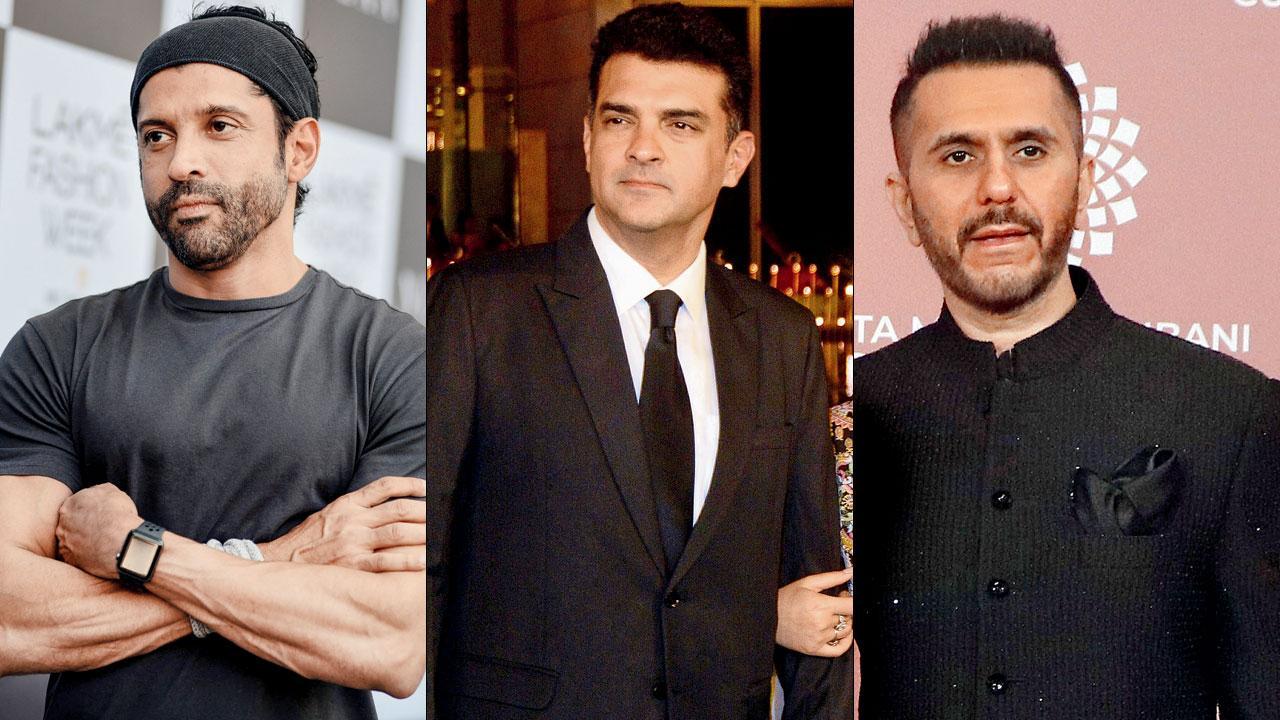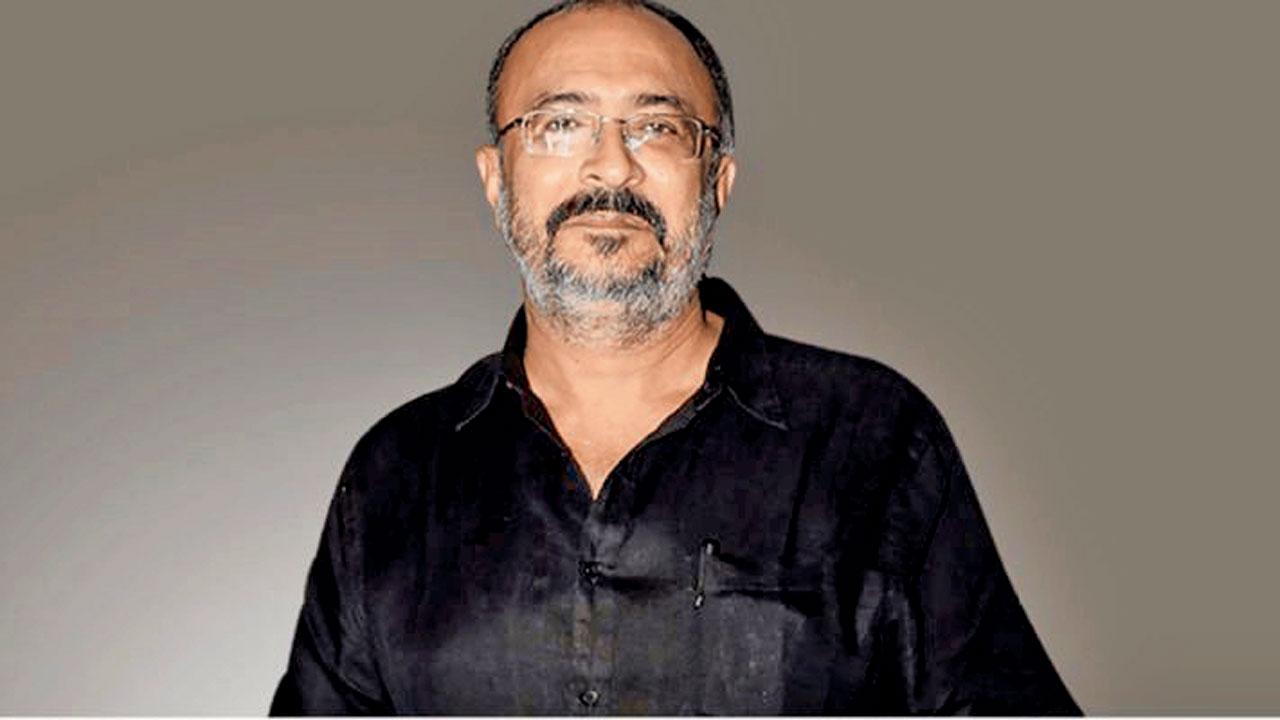After WGA strike rocks Hollywood, Screenwriters Association in India drafts Minimum Basic Contract that seeks credit, higher remuneration for writers; lines up meeting with producers for next week

Farhan Akhtar, Siddharth Roy Kapur and Ritesh Sidhwani
More than 11,000 members of the Writers Guild of America (WGA) went on strike last Tuesday, following the breakdown of their negotiations with the Alliance of Motion Picture and Television Producers (AMPTP). The WGA union criticised the studios for treating writing as a freelance profession rather than providing fair employment conditions to writers. Closer home, the Screenwriters Association (SWA) has expressed its solidarity with the WGA. The episode has reignited the conversation about writers’ rights. A year after drafting the Minimum Basic Contract (MBC) and holding a round of meetings with leading producers, SWA is set to resume the negotiations with stakeholders. Suhail Anwar, chief operating officer, SWA, says, “We need fairer contracts for writers. Credits are not guaranteed, neither are fees despite having a pay scale.”
ADVERTISEMENT
The contract will focus on two key areas — credit, and remuneration. Zaman Habib, general secretary, SWA, rues that the fight in India begins from the fact that writers are often not acknowledged. “When a writer is successful, they can negotiate, but new writers are exploited. The MBC will assure them credit and remuneration. We have seen cases where a writer has delivered a screenplay for [as low as] Rs 50,000.”

Anjum Rajabali
In 2018, a minimum-pay scale was set up. Among other things, it stated that for a film mounted on a budget of Rs 5 crore to Rs 15 crore, the writer should be paid Rs 24 lakh for the complete script. Habib notes that while these rules exist on paper, they are often not applied by producers and studios. “This pay scale has to be agreed upon by unions and guilds so that there is no discrepancy or manipulation. It will be fair to both producers and writers in the industry. A basic respectable amount has to be assured. In films, a writer’s total remuneration is often priced at Rs 5 lakh. The tranches are spread out over nine months to two years, depending on the benevolence of a producer.”
Habib rues, “Many producers believe in keeping writers happy, but many others are repeatedly in the habit of not paying or delaying payments.” To address the issue, the SWA will conduct a meeting with Producers’ Guild, Indian Film and Television Producers Council (IFTPC), Indian Motion Picture Producers Association (IMPPA), and individual producers next week. He adds, “Producers like Siddharth Roy Kapur, Ritesh Sidhwani and Farhan Akhtar are encouraging [of the MBC].”
The MBC is being formulated by a team of experienced writers and lyricists, headed by Anjum Rajabali, who has long been a champion of writers’ rights in India. He highlights that a new “offensive” clause has been introduced by some producers. “The contract has a clause, which states that the final credit of the writer will be at the discretion of the producer. This has naturally outraged all writers. Credit indicates the writer’s contribution to the film. It is an inalienable right — legally and morally. If there are multiple writers and there is a dispute among them concerning credits, then experts, who understand screenwriting, should assess their individual contribution to the film and determine their credits,” Rajabali explains.
The SWA has set up a credit arbitration committee to resolve this issue, and Rajabali says it will be a key point of discussion in the upcoming meeting. “In the credit arbitration committee, the drafts submitted by the writers are read and the extent of their inclusion in the final script is assessed by senior writers anonymously. We now seek that all credit disputes be handled by this process, and not at the producer’s discretion,” he asserts. Habib adds, “Credits on a film or a series will be explained in this contract. Also, credits can’t be measured on industry seniority. It will be measured by the amount of work put in. Despite being a junior writer, if someone has put in more work, his name should come first.”
Royalty is another issue. By and large, in Bollywood, the norm is that the creator/writer transfers the Intellectual Property Rights (IPR) to the production house, studio, or platform. With the MBC, Habib says they are seeking royalty that would be over and above the remuneration. Rajabali is optimistic of arriving at an understanding with the producers regarding the MBC. “We’re fully cognisant of their points of view, and their anxieties. The changes that we’re proposing are fair to both sides.”
Also Read: OTT has given many opportunities to theatre actors, writers: Kumud Mishra
SWA recommends
Consideration: Make sure that the amount of consideration is given in the draft and broken down into tranches. Avoid the one-time bulk payment that shall be made once the work is completed.
Credit: Ensure you receive your due credit. Make sure that the credit clause survives the termination of your agreement. Even if the agreement is terminated by either party, you shall still be credited for your work.
 Subscribe today by clicking the link and stay updated with the latest news!" Click here!
Subscribe today by clicking the link and stay updated with the latest news!" Click here!







